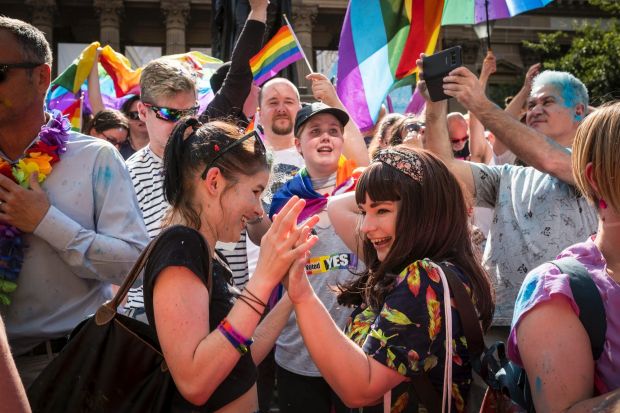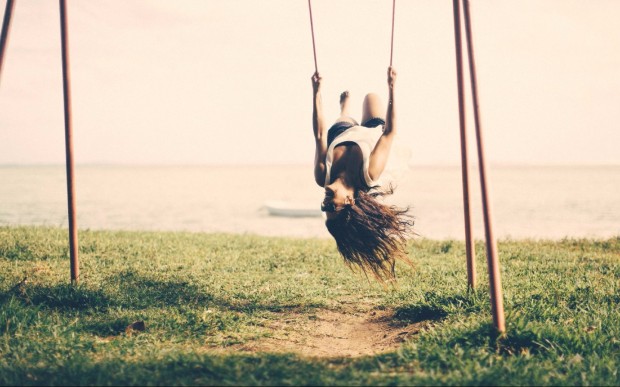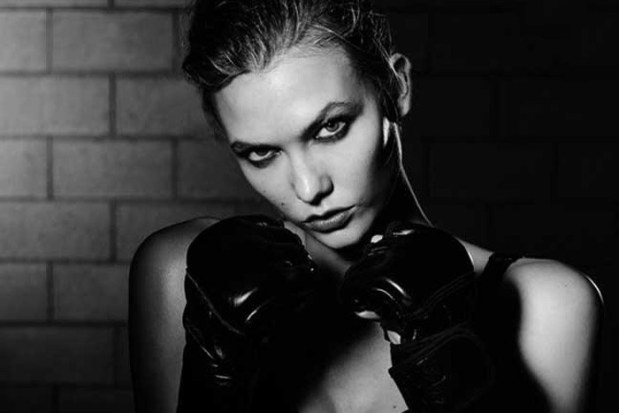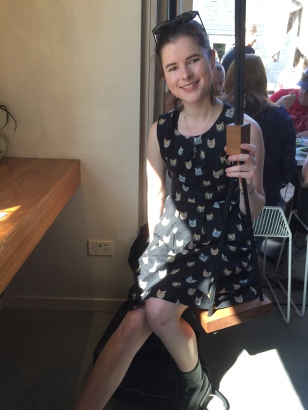
A recent photo of me
I did a workshop with Batyr and they taught us how to share our story in a safe and insightful way and this is what I ended up with
For those of you who don’t know me, my name is Holly, I am 23 years old and grew up on the sunny shores of the Northern Beaches in Sydney. I study physiotherapy at the university of Melbourne. I am, what most people would call a bookworm, but I prefer the term book dragon; I play quidditch – and before you ask, no we don’t fly. I’m a self-confessed nerd with a passion for learning. I adore cats and I’m of the strong belief that almost any meal can be improved with peanut butter. I went to state championships for gymnastics four times, but my greatest accomplishment to date is managing to get a selfie with Daniel Radcliffe. I am all these things and more, but I am also living with depression, anxiety and anorexia nervosa.
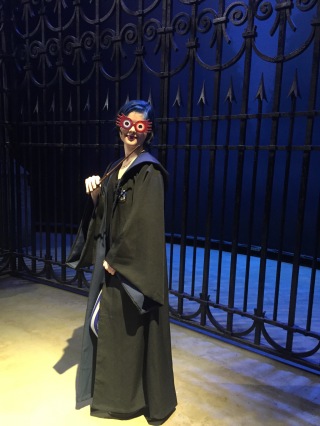
Me at Warner Bros Studio Tour
I often credit 2010 with the start of my mental health journey, but in reality it started when I was much younger. I was always anxious and insecure, desperate to please everyone. I remember being 6 years old in ballet class and looking at the girl next to me and thinking that she was so perfect – she was long, lean and elegant, and I was…well stumpy and frumpy.
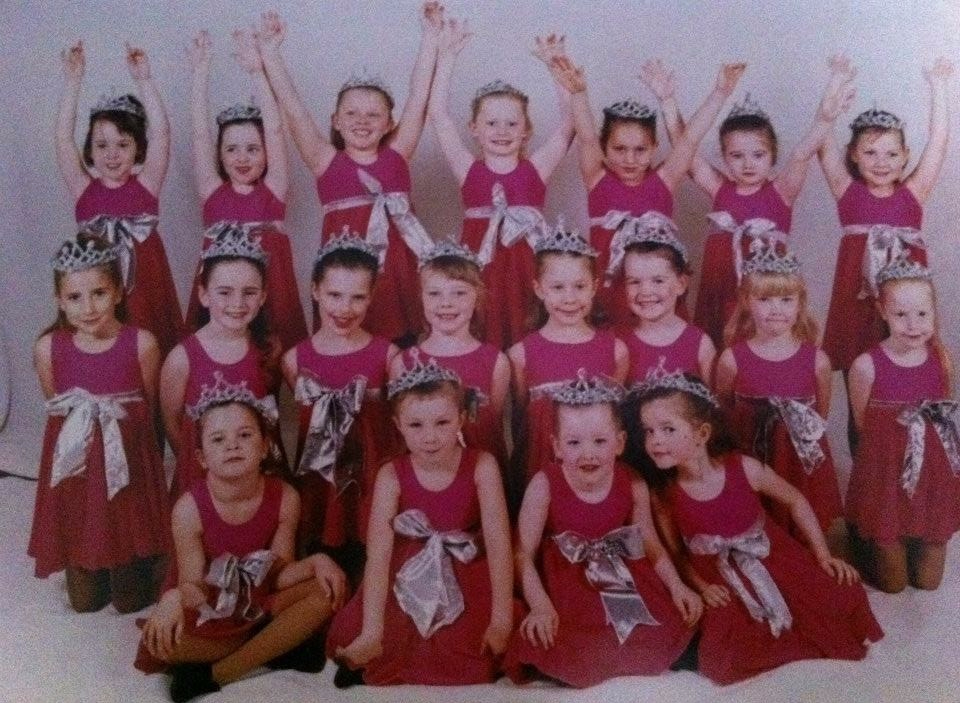
Dance class when I was about 5. Can you find me? answer’s at the bottom of the post*
In 2010 I went to France along with 20 other girls from my school on a language immersion course. It was here that I started having difficulties with my eating. The teachers on the trip were alerted to the issue and I was put on supervision during and after meals. I had never felt so ashamed in my life. While the other 20 girls all sat and laughed together, I sat with the teachers crying over cornflakes. When I returned home, there was no follow up. It wasn’t acknowledged by my parents, nor re-addressed by the school. I felt entirely let down, even though part of me denied there was a problem, part of me knew things were not okay. The lack of follow up made me feel invalidated, unworthy of help and as though I was overplaying the whole problem. For the next 5 years I was struggling internally. I felt so worthless and undeserving that I thought I needed to carry around a plant to compensate for the oxygen I stole from the atmosphere. No one really thought to ask if I was okay, I mean I never looked mentally ill. I got high grades graduating high school with academic honour, was an athlete, and participated in two school orchestras and debating. I always wonder what would have happened if I got help earlier, how many years of health would I have gained?
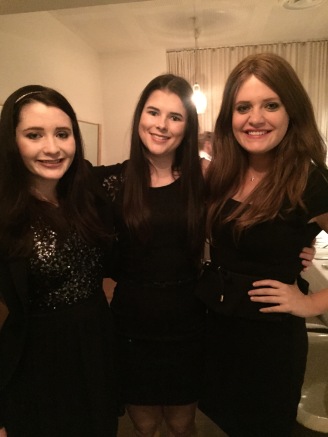
My best friends throughout highschool – Sarah (left) and Anna (right)
In 2015, everything went south. I had started self harming, and was thinking about suicide on a daily basis. I remember spending hours curled up in a ball shaking under my desk while I waited for the storm to pass. As the self harm got progressively worse and more frequent I confided in my best friend Sarah who had experienced mental illness herself. She gave me an ultimatum: I seek help or she would cease her own treatment. Looking back, this was extremely manipulative, but at the time it was the only way to get through to me. I didn’t care about myself, but she was my rock and I would do it for her. So I went to headspace. I was too ashamed to talk to my family. I was terrified of being rejected by them, as I felt that being mentally ill meant I was no longer the perfect daughter. I always felt that my love was conditional and based upon my achievements, and being mentally ill would tarnish all of them. I remember spending 3 hours in my psychologist’s office, head in my hands and shaking as I tried to reassure her that everything was okay, and she didn’t need to involve my parents. I lost this argument, which was probably for the best. So I went to my GP. I was prescribed medication and referred to a private psychologist. Unfortunately, we didn’t click and I found myself deteriorating rapidly. My GP was an amazing support and saw me weekly during my most difficult times. Eventually, she thought it best to send me to a young adult psychiatric ward. I wasn’t sure what to expect but I found the experience valuable and supportive. We jiggled my medications around and found a combination that seemed to fit. My depression and anxiety became more manageable and while the medications helped, I still had to learn strategies and engage with therapy – medication is not a magic fix. I spent the next year doing a group day program through the hospital and seeing the same psychiatrist. While my mood stabilised and my anxiety was slightly more under control, my psychiatrist refused to acknowledge my eating disorder. I took things into my own hands and after speaking with an occupational therapist at day program I sought out a dietician. This was the first time I would try to recover from my eating disorder.
Recovery from my eating disorder was not linear and when I first sought treatment, new disordered eating patterns emerged. These new behaviours created more distress, more shame and made me feel completely helpless. I began to feel like recovery simply wasn’t possible. Midway through 2016 I would complete my bachelor of science. In celebration, I organised a trip overseas. Suddenly, recovery had a timeline.
This brings me to my trip to Europe in 2016. I was travelling with my best friend Sarah, but Anorexia tagged along as an uninvited guest. Anorexia tainted my trip to Europe, as I was unable to try the local cuisines. I never got to try a pretzel in Germany or paella in Spain. I also spent a lot less time taking in the culture and amazing cities, and more time focusing on not fainting. What is more, I lost my best friend of 10 years because my mental illness was becoming too much for her to deal with. I felt like the ground had been ripped out from underneath me. The one person I had counted on to never leave, did exactly that. While anorexia certainly stained some of my trip, I still have some pretty great memories from it. I mean, I did get that selfie with Daniel Radcliffe. I also met a girl called Nicky. Nicky and I had been talking for several months on tumblr. She was from Brisbane and it just so happened we would be in London at the same time. We didn’t realise it then, but Nicky and I eventually fell for each other, we dated for 6 months and unfortunately due to her own mental health Nicky decided that it would be best if we returned to being just friends. Being in a relationship with Nicky meant coming out to my parents. I remember coming out to my Dad and receiving the most heartwarming response that made me feel like he truly loved me for the first time in as long as I could remember. I had denied my sexuality for a very long time. I think deep down I knew I wasn’t straight from a young age. In primary school, while I had crushes on boys, I felt the same way about girls too. For me, coming out was like being freed from a straight jacket (pardon the pun). No longer did I have to fit into a tight mould. I had room to spread my wings, and be a little bit more of myself.
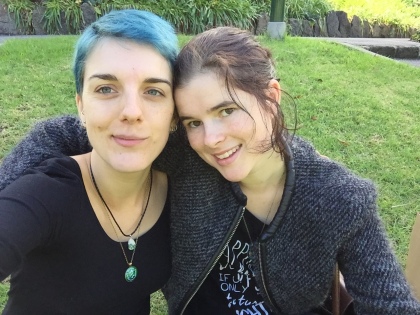
Nicky and I
When I returned home from my trip my eating disorder was out of control. Anorexia was my master and I was its puppet. So with guidance from my dietician, I had an inpatient stay at an eating disorder clinic. It was only now that I was officially diagnosed with Anorexia Nervosa, despite 6 years of struggling. This was one of the hardest things I had ever done. It meant stopping exercise, eating 6 times a day and having bed rest for an hour after every meal. Life in the clinic was repetitive but it was what I needed. I was learning to be normal again. While a psychiatric admission is never easy, it isn’t all trudging through mud either. I made incredible connections with so many wonderful people, and to this day my two best friends, Kate and Jade, are people I met while inpatient. When in a psych ward, you are at your most vulnerable. You are going through your deepest and darkest stuff, but so is everyone else there. This made me realise that being vulnerable, truly is the secret of connection. It is through connection I have found reason to keep on living. With great people come great memories. I remember the morning of the 14th of October vividly. I was hoping for an email with an offer to study my dream degree. I had all but given up. I was sitting at the lunch table with all the other patients. I remember looking at my lunch with a similar expression as if you had served me a rattle snake. But I decided to check my email one last time. I couldn’t believe it. There it was, an offer to study Physiotherapy at the University of Melbourne. The sheer joy that accompanied that email had me in tears. The experience was only made better by the warm love and support I got from all the other patients. In that moment, any terror I had about the sandwich on the plate was temporarily alleviated. I was going to Melbourne. I also had my graduation ceremony for my undergraduate degree while inpatient. I woke up at 5:30am to get ready and make the hour and a half drive to the university with my parents where I got to see all my wonderful university friends. One of the other patients even got up at 5:45 to do my make up for me, which meant more to me than I could ever express – it truly is the little things that count. While this wouldn’t be my last admission, it was the first step in achieving a normal relationship with food. I also had the most amazing psychiatrist who I continue to see via skype – I never thought I would need to clean my room to prepare for a psychiatrist appointment. While he certainly is a quirky character, I mean we once discussed whether I was a really good pen, or a really terrible radio, I owe a lot of my recovery to him. With him, I was able to get the medication balance right, but also felt like my struggle was valid. Before moving to Melbourne I had a ‘top up’ admission to prepare me for living on my own.
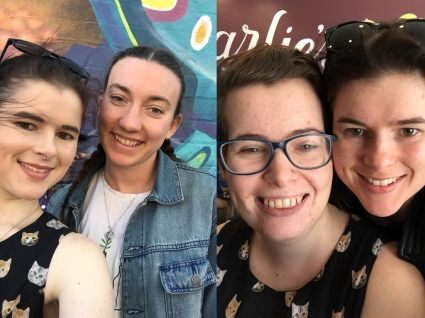
Myself and Jade (left) and Kate (right). Yes Kate and I have the same dress.
Moving to Melbourne was a huge step for me, it would be the first time I lived out of home. This meant a lot of independence and freedom. The first thing I did was set up a new team. Anorexia was a tough opponent, and I needed back up. I was incredibly lucky and found an amazing psychologist and dietician. While it can take a long time to find the right therapist, when you do, it’s totally worth it. Moving to Melbourne had its challenges, I had no one making sure I was recovering, and I realised I had to recover myself. No one else was going to do it for me. About 3 months after moving to Melbourne, I relapsed. My exercise had increased and was impacting my study, and I was terrified to keep food in the house. Everything happened very quickly after that and I don’t really remember a lot of it. I had a meeting with the course co-ordinator who suggested I take a leave of absence. I couldn’t believe it. The course I had worked so hard to get into, was all about to be lost. I became medically compromised with very little immunity, and my iron levels were dangerously low requiring an IV iron infusion. I remember crying in my dietician appointment, it was the first time I had cried in front of someone for as long as I could remember. I was stuck. I felt like life was at a dead end. Hospital was being discussed, but I was determined not to let it get to that. With my dietician’s encouragement, I called Mum, and asked her to come down and help me get back on track. This marked a huge change, I had never sought help from my family. Their support had always been limited to financial support. I didn’t realise that they could be emotional support as well.
And so I clawed my way back. I finished the semester with 2 credits and a high distinction. Now, I am still studying physiotherapy, I have some wonderful friends even if they are mostly interstate. I am by no means recovered. I still stick to a meal plan, have regular dietician and psychologist appointments. I still have a long way to go, but I’m eating regularly and have a health relationship with exercise. The big lesson I had to learn was that recovery is not linear, in fact it looks more like you’ve handed a 3 year old a crayon, and that’s okay.

Me at the iconic Hosier Lane
*Which kiddo was me? the bottom right
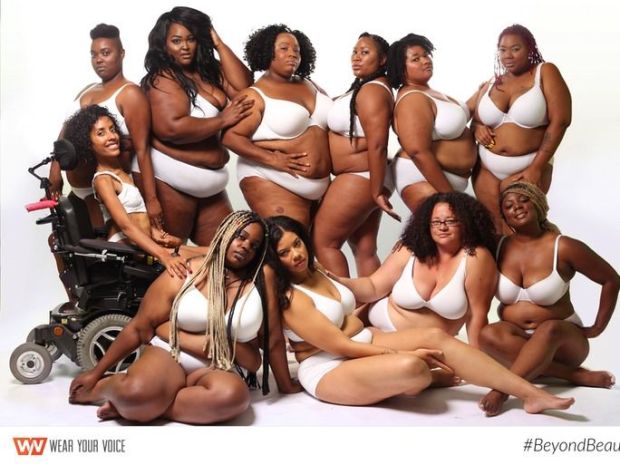 I have done a lot of thinking over the last few days about body positivity and what that means. Something I have been desperate to find is how I, a thin white able-bodied cisgendered female, can support the movement without detracting from the voices of marginalised bodies.
I have done a lot of thinking over the last few days about body positivity and what that means. Something I have been desperate to find is how I, a thin white able-bodied cisgendered female, can support the movement without detracting from the voices of marginalised bodies.
